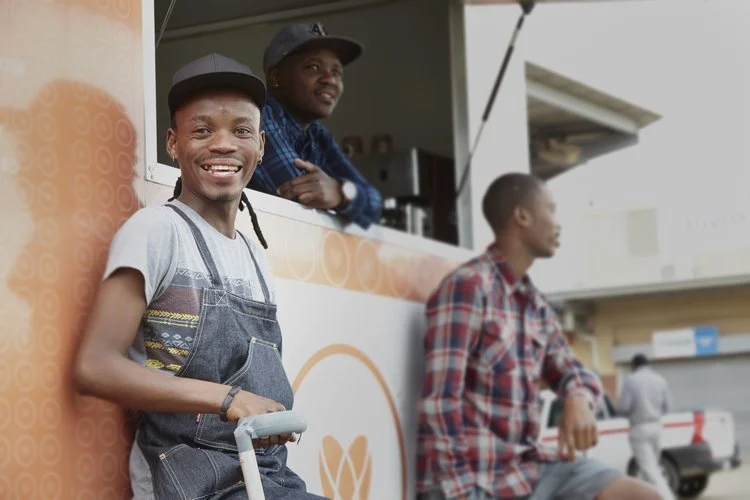Youth challenge notions of business success
By 2025, millennials will make up 75% of the global workforce and their growing influence on business is rapidly redefining our notion of success. Unlike Baby Boomers, whose aspirations centred around working their way up the corporate ladder, millennials gravitate towards entrepreneurship and the flexibility, innovation, creativity and purpose associated with start-up businesses. This is why they’re the most entrepreneurial generation yet, with 66% aspiring to one day start a business of their own, according to a study by Bentley University.
“As products of the digital age, millennials have grown up with a culture of connectedness, where news travels fast and normal people have a platform from which to address potentially large audiences. Brand accountability is more important than ever and millennial consumers increasingly choose brands based on their corporate ethics and social or environmental impact,” explains Bridgit Evans, SAB Foundation Director.
Deloitte’s 2018 Millennial Survey found that 80% believe that businesses’ success should be measured in terms of their impact on society and the environment, rather than just financial performance. And, as a result, millennials are increasingly starting businesses that strive for social change as well as profits.
According to Evans, this shift in business priorities could have the most significant impact in places like South Africa, where social issues like inequality, poor education, healthcare access and environmental concerns have the most devastating consequences.
“A culture of social entrepreneurship is essential to address critical social problems in South Africa and it is heartening to see the nation’s youth responding to the need for more conscious businesses. Unemployment is highest amongst the youth, which is why the SAB Foundation focusses on providing business support and funding to their enterprises. By promoting these businesses, we hope to create job opportunities and contribute to the betterment of society as a whole,” she explains.
And, the foundation already boasts a number of young social innovators and entrepreneurs who have flourished with their assistance.
This includes 35 year old Nhlanhla Ndlovu, the founder of Hustlenomics, who won R1.3 million in seed-funding during the 2018 SAB Foundation Social Innovation Awards. Hustlenomics provides affordable housing in informal setllements, while addressing a number of other social and environmental issues.
“They replace backyard shacks in informal settlements with formal brick-and-mortar structures. To make these dwellings accessible to low income earners, they build the structures free of charge and, once the building is complete, split the rental income with the land owners until the construction costs have been recuperated,” says Evans.
As well as increasing access to housing, Nhlanhla has taken social innovation one step further by using sustainable materials in the construction process and upskilling women in his community by training them on sustainable construction techniques and brick manufacturing.
“As a for-profit social enterprise, Hustlenomics is a perfect representation of the trend to make money while doing good, rather than focussing on either one or the other,” adds Evans.
Nabilah Diedericks is another young innovator that the foundation is working with through its Tholoana Enterprise Programme. 27 year old Nabilah founded Finz Aquatics and Fitness Development, a swim school that specialises in disability therapy for children and adults with a variety of special needs, including autistic-spectrum disorder.
Nabilah is a registered Learn to Swim coach and specialises in teaching water safety to children of all ages and abilities, however this has particular significance for those with autism.
“Water holds a special appeal for many children on the autism spectrum but this can be a dangerous fascination, particularly when coupled with a tendency to wander. Tragically, accidental drowning is prevalent amoungst these children. Nabilah’s training helps reduce this risk while enhancing the children’s joy, confidence, fitness and coordination,” explains Evans.
Evans uses Nabilah and Nhlanhla as examples of millennial entrepreneurs who strive for meaning and a sense of purpose on-top of profits. According to research by Deloitte, 76% of millennials believe that businesses have no ambition beyond wanting to make money. However, these entrepreneurs are proving that making money and doing good needn’t be mutually exclusive.

